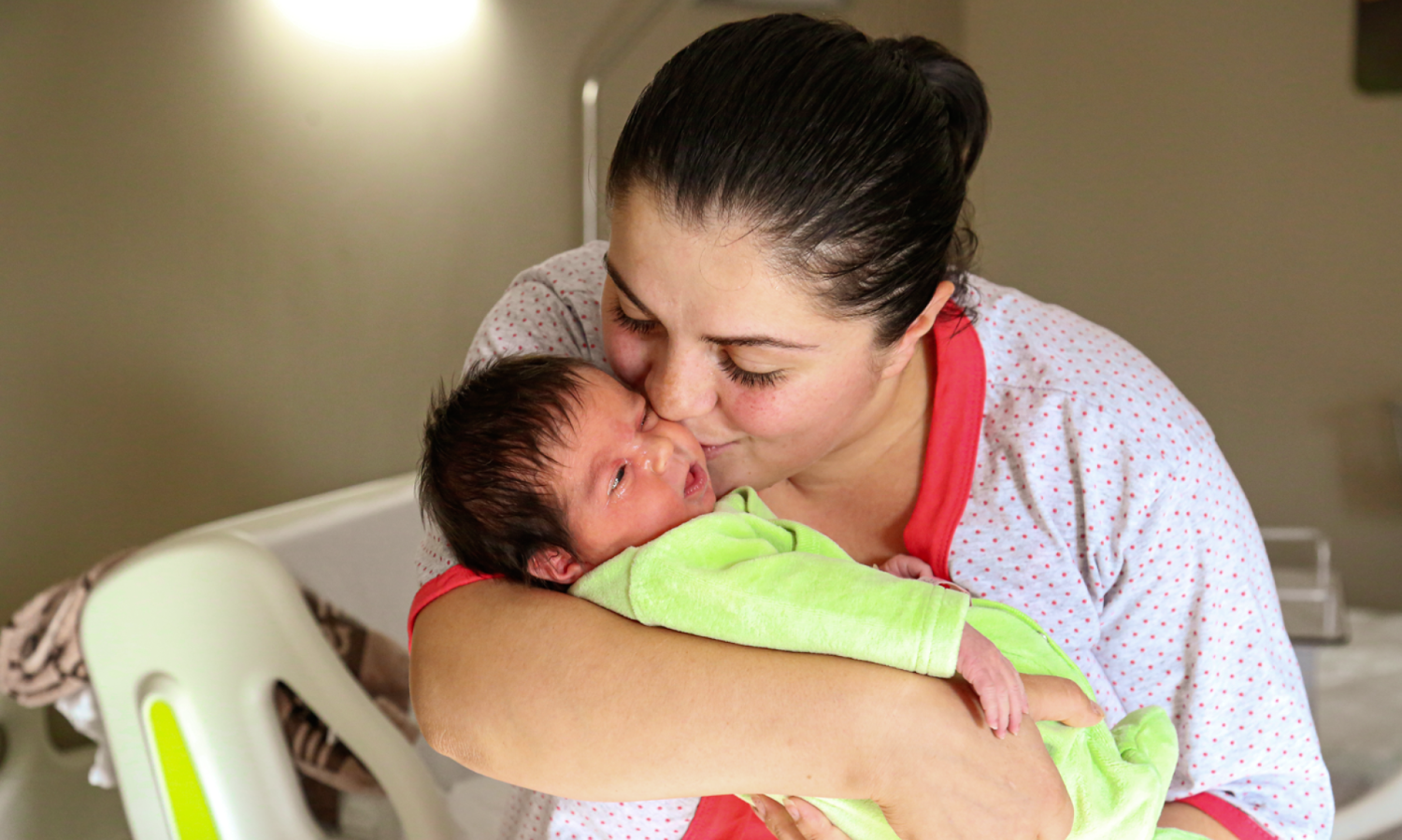Projects in the Republic of Georgia
 Project image used with permission from UNICEF Georgia: How a birth registry helps women and children in Georgia | UNICEF Georgia
Project image used with permission from UNICEF Georgia: How a birth registry helps women and children in Georgia | UNICEF GeorgiaProject in this area will be updated on the web page for the research group Global and Environmental helath https://uit.no/research/geh. In 2014, we started working on design of a new national and digital birth registry in Georgia. The registry was launched in January 2016 and has to date registered over 300,000 pregnancies and deliveries. From 2017, PhD students and master students used data from Georgia for writing their theses. There are 2 completed PhD theses, 4 ongoing PhD projects and over 10 master projects in Georgia and Norway. Subject matter is not limited to the GBR, there are students working on cancer, hepatitis C and lead contamination. In 2018, UNICEF published results from a MICS study in Georgia that showed alarmingly high blood lead levels in children, especially in the western part of the country. Since then, the systems epidemiology research group has been involved in designing and implementing a national surveillance system for lead in children. It uses new technology and new methods, specifically a sample method that only requires capillary blood, but still can quantify the lead concentration in blood very accurately. We recently completed sampling blood and environmental samples for a pilot study that is part of a larger initiative to find the sources and exposure pathways for lead in western Georgia.
More information on these specific research areas and projects can be found below.
The aim of the GBR is to establish and maintain a national digital birth registry system in Georgia. From the implementation in 2016, the GBR has become a mandatory registry with a coverage of 99.8%. Over 300 000 pregnancies, deliveries and newborns registered to date. The data has been and is being used for numerous Master and PhD students in Norway and Georgia. This middle-income country now has an improved and almost complete overview of antenatal challenges allowing continuous improvement of pregnancy and newborn care.
Completed PhD projects:
- Tinatin Manjavidze. Perinatal mortality and its association with antenatal care utilization in the Republic of Georgia. Link to thesis.
- Ingvild Hersoug Nedberg. Cesarean sections in Georgia and Norway - What contributes to too much, too little, or just right? Link to thesis.
Previous PhD projects:
- Natia Shkvitaridze. Maternal mortality in Georgia
Ongoing PhD projects:
- Nia Khachidze: Adolescent pregnancies in Georgia.
- Ana Aslanikashvili. Hepatitis C registry: Covid-19 and cardiovascular related hospitalizations.
- Ani Beraia. The Cancer registry: 5-year age-standardized incidence rates in Georgia.
Objective: Recruit and register 3 PhD projects at UiT. Improve existing registries and create new scientific activity.
Results: We have 3 PhD students working on Hepatitis C, cancer and the Georgian Birth Registry, respectively. There is one Postdoc managing data and co-supervising the PhD students. The main scientific activity besides the PhD projects, is the new surveillance system for lead (Pb).
Scientific and societal impact: We use existing data from the national registries and create new data for use in Georgia and internationally. We continue to build capacity in epidemiology. The new lead initiative may improve health for a whole generation of children.
Funding: UiT The Arctic University of Norway
Apart from site-specific lead contamination in certain developing countries, mostly related to e-waste, the lead issue was, by many, considered an environmental problem of the past.
In 2018, UNICEF Georgia published a report from a national Multiple Indicator Cluster Survey (MICS) that revealed a serious problem with lead contamination in Georgian children, especially in the western parts of the country. Nationally, 41% of children from 2-7 years had blood lead levels (BLL) higher than 5 μg/dL, and 16% above 10 μg/dL. In Adjara (western Georgia) 85% of the children had a BLL above 5 μg/dL (UNICEF, 2019). It seems that lead is not a problem of the past after all. A recent article published in the Lancet (Larsen and Sánchez-Triana, 2023) estimates that 47% (752 million) of all children living in low- and middle-income countries have a BLL above 5 μg/dL.

In 2022, UNICEF announced a tender for the description and implementation of a national surveillance system for lead in Georgia. Our research group won the bid against competition from, among others, research institutions from USA and UK. One of the components that favored our proposal was the use of capillary blood, instead of normal venous blood samples. A much less invasive method developed by our research partner in Canada, Institut national de santé publique du Québec (INSPQ) using micro-sampling equipment from Neoteryx in the US. For in-depth information, see the 2022 G-LESS UNICEF report. The surveillance system started sampling blood from children in September 2023. In late October 2023, we completed the field work of a pilot study that aims to discover some of the sources of lead and possible exposure pathways in Adjara, Georgia. This pilot is part of a larger plan to apply for funding from external sources.